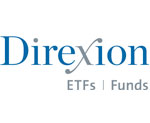by Paul Katzeff, Investors Business Daily
The growth of robo-advisors is building like a tsunami. Robo-advisors — sometimes referred to as digital advisors or e-advisors — are forecast to have an estimated $2.2 trillion dollars of U.S. client money under management by 2020, up from an estimated $300 billion this year, according to strategy and management consulting firm A.T. Kearney.
That would put robo-advisors in charge of 5.6% of invested assets, up from 0.5% last year and 0.9% this year.
Clearly, more and more investors have decided that robo-advisors should be part of their overall investment strategy and their retirement planning.
And big financial firms have decided to join ’em since they can’t beat ’em. Charles Schwab, Vanguard, BlackRock and Fidelity are among the mainstream money managers who have taken over robo-advisory firms.
So, for investors the question is: What are the seven things you need to know when choosing a robo-advisor?
Costs. How do they compare to other financial advisors, robo- and human?
“One of the attractive attributes of a robo-advisor is that they (tend to be) less expensive than human advisors,” said Bill Militello, CEO of Militello Capital, in Leesburg, Va.
Many robos offer descending fee schedules. The more assets you hand them, the lower your fee is generally. Vanguard Personal Advisor Services charges 0.30% on assets. Betterment’s fees start at 0.35% on balances up to $10,000 of AUM, declining to 0.15% for AUM above $100,000. A typical human financial advisor fee is 1% of AUM, says A.T. Kearney partner Uday Singh.
Other robo-advisors offer incentives to young investors who are in the early stages of building assets. Wealthfront and SigFig levy a 0% fee on up to $10,000 in assets and 0.25% on assets greater than that. Both require certain minimum balances.
If a robo-advisor’s costs are very low, ask if the firm supplements its income by getting paid by advertisers on its site or for making referrals to other financial firms, says Carla Dearing, CEO of Sum180, an online financial planning service. Be sure to learn if the robo-advisor charges additional fees for services such as trades, deposits, withdrawals and rebalancing.
Access to a human advisor? More robo-advisors offer hybrid service, giving customers access to flesh-and-blood advisors in addition to their algorithm-based planning and investment guidance. The availability of a human advisor can be especially valuable to young investors who don’t have a lot of experience — particularly during a volatile market like the one that has started the new year. “The advisor should be a registered investment advisor (RIA), not just someone who can only discuss your trading history,” Singh said.
Investment options. What are they? Do they match your needs?
You get what you pay for, says Militello. Do the robo-advisors you’re considering offer the types of investments you’re interested in? Is a robo-advisor’s investment menu limited to low-cost ETFs? Is it limited to securities from one source? Does it also offer mutual funds, individual stocks, commodities, real estate and private equity, if those interest you?
Unbiased advice and products. Is the robo-advisor free to give you the best advice and investments it can find for your needs? Does it offer only in-house products and advice? “The online robo-advisor arm of an insurance agency may only offer you annuities and insurance, even if those aren’t the best things for you,” Dearing said.
Robo-advisor’s website. Is it easy to understand and use for your level of investment experience? “Or is it crammed with jargon?” Dearing said. “Does it look like you’re cramming for a finance degree? Or is it user-friendly?”
Advisor’s background. See if there are a lot of complaints or regulatory actions listed in the firm’s Form ADV and other filings with the SEC, Finra or state regulators.
Comprehensive approach. Does the advisor have access to information in accounts that the advisor would not control, like your 401(k) and at a traditional brokerage? “You want an advisor who can give comprehensive planning advice, so it’s got to be able to see what your entire portfolio looks like, not just one or two slices,” Singh said.
Read More At Investor’s Business Daily: http://news.investors.com/investing/010816-788790-how-to-find-a-robo-advisor.htm#ixzz3wfoX8atw
Follow us: @IBDinvestors on Twitter | InvestorsBusinessDaily on Facebook
Read More At Investor’s Business Daily: http://news.investors.com/investing/010816-788790-how-to-find-a-robo-advisor.htm#ixzz3wfoLpUxa
Follow us: @IBDinvestors on Twitter | InvestorsBusinessDaily on Facebook
http://news.investors.com/investing/010816-788790-how-to-find-a-robo-advisor.htm















